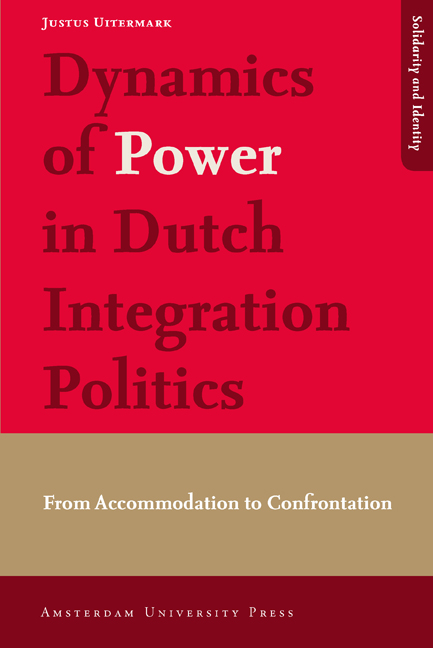7 - Introduction to Part III: Civil Power and Governance Figurations
Published online by Cambridge University Press: 15 January 2021
Summary
Big cities like Amsterdam and Rotterdam are focal points of integration politics. The government and media constantly focus their attention on these places, as they are perceived to be the front line of multicultural society. This is where disintegration is supposed to be occurring, where civil norms are violated. News media over the years have produced a steady stream of vivid accounts of Moroccan teenagers harassing elderly natives, parents forsaking their responsibility in raising children, Muslim men who do not want their wives to participate in society and so on. But villains and victims are not the only characters in these stories. There is also intense interest in the heroes and heroines who resist degeneration and strive to restore or recreate civil unity. Civil society associations, active residents, and spirited and committed administrators receive favorable coverage.
The subsequent chapters investigate how civil power is distributed in Amsterdam and Rotterdam. How and why have power relations transformed within local governance networks since 1980? I focus specifically on the position of Moroccan, Turkish and Islamic associations within local governance figurations. The reason for this is that the beliefs and practices of these (overlapping) population groups are most directly at issue in integration politics. Minority associations are often portrayed as threats to the civil community because they allegedly foster uncivil discourses and practices. But minority associations are also called upon to “take responsibility” and to mobilize and educate their constituents so that integration problems can be solved. How does this ambivalence play out in interactions between the government and minority associations? Which associations become powerful actors in governance networks and which associations are marginalized? What are the differences over time and between cities in the balance of power between different civil actors?
At first sight, it seems that minority associations were supported in Amsterdam and marginalized in Rotterdam. Amsterdam has become known as a city that, in spite of severe incidents, puts its faith in dialogue, cooperation and tolerance. Amsterdam's mayors have a long history of promoting pragmatic solutions to integration problems, and since his installment in 2001, Job Cohen has been a figurehead of Pragmatism.
- Type
- Chapter
- Information
- Dynamics of Power in Dutch Integration PoliticsFrom Accommodation to Confrontation, pp. 155 - 166Publisher: Amsterdam University PressPrint publication year: 2013



